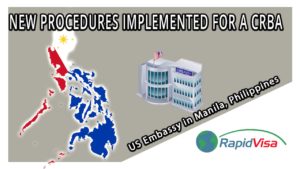When attending the Embassy Interview for the K-1 Fiancée Visa, K-3 Spousal Visa or CR1 Visa, the applicant is required to bring their birth certificate. Applicants may obtain birth certificates at any PSA branch for a small fee. Relatives in the Philippines may obtain these documents. The PSA can also provide an index of all children born to an applicant. Birth certificates can also be ordered on the website https://psahelpline.ph. The site accepts credit cards issued in the U.S., Japan, Europe, Australia, and Hong Kong. There is a flat fee for each document of $20. The fee includes shipping by courier to the delivery address abroad.
A certified copy of a birth registration (less preferred) may be obtained from the local civil registrar at the place of birth. Local Civil Registrar records are often incomplete and it is often necessary to augment local birth certificates with baptismal certificates. “Affidavits from two disinterested persons” are generally considered unreliable but may be useful in cases where pre-war records are not locatable.
Frequently, certificates for births occurring since 1946 may also be obtained from the National Census and Statistics Office (NCSO), at the PSA East Ave, Diliman, Quezon City, Philippines. Certificates of birth before 1946 are maintained at the National Archives Division at T.M. Kalaw St.,Ermita, Manila. Issuance of a birth certificate takes approximately five working days, for which there may be a fee, plus an additional fee if issuance is to take place within 24 hours, or if the document is to be printed on special security paper.
The Philippine Statistics Authority (PSA) is the central repository for civil records. Local civil records in many localities in the Philippines have been destroyed due to war and natural calamities. Church records, while useful as secondary evidence, are frequently unavailable for the same reasons. When a specific civil document is unavailable, it is advisable to obtain a certificate of non-availability from the Philippine Statistics Authority (PSA). Local parishes usually issue similar certificates of non-availability. In the absence of primary and secondary evidence, substantiated by replies from civil or church authorities, affidavits from two persons who have personal knowledge of the birth are generally accepted.
A Philippines Birth Certificate can be ordered online here.


